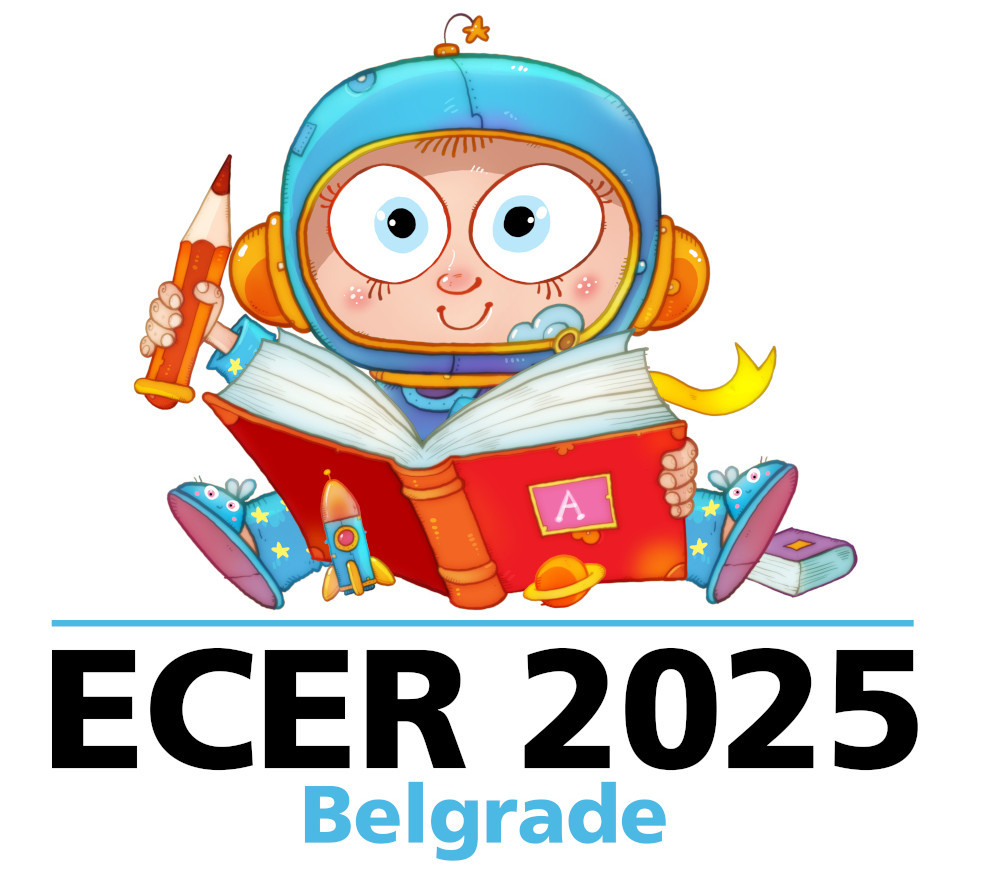- Session: 00 SES 0.5 WS I: Polycrisis of Imagination: Towards a Richer Concept of Imaginative Capacity
- Time: 9:00 - 10:30
- Organising Body: NW 28, Sociologies of Education
- Facilitators: Gyöngyvér Pataki and Terri Seddon
- Registration: No registration required
Workshop Description:
The workshop is aimed at fostering a relational, (post)critical, experimental, in short: richer concept of imaginative capacity at the edge of ‘polycrisis’ (Morin & Kern, 1993). Its intention is to harbour the epistemological and political potential of imaginative inquiry for educational research. The arts and humanities historically have been believed to equip humankind with an imaginative capacity capable of controlling its environment. That is certainly not the case anymore (Ghosh, 2019). It is boasted of critical thinking vested with the hope of a desirable future without reflection on the increasingly obvious fact that ‘postnormal times’ (Facer 2022) posit situations in which no statistics, no overviews, not even the necessary time for radically questioning existing assumptions can help. With no regard for locally unpredictable, lived experiences (Ingold, 2011) and without any consideration for co-creative, participatory ecosystems there is not even a slight chance of ensuring any sustainable education (,Grossberg, 2019;; Van Gorp et al., 2022; Seddon, 2023).
Complex, chaotic, contradictory times are indeed upon us, where small changes can have significant transformative effects (Facer, 2022), where neither clear trajectories can be outlined nor static viewpoints can be negotiated or compromised (Funtowicz & Ravetz, 1993). In other words, postnormal phenomena of polycrisis confront present-day education, without current imaginative capacity sufficing to keep them at bay.
During this workshop this crisis of imagination is thus addressed. Drawing on Facer’s typology of ignorance it focuses on how interactions of unpredictable lived experience, mundane knowledge or material can generate a historically transformative event or process in education (Nugroho et al., 2018; Sardar & Sweeney, 2016; Sharpe et al., 2016; Sriprakash et al., 2020; Taleb, 2007). What keeps us from recognising and suitably addressing unforeseen realities? In short, how we can navigate times of growing uncertainty to find common ground or ways forward enabling one to conceive of, assess and nurture possible futures?
In the light of these concerns there is a tendency confirmed by contemporaneous scholarship to get rid of the instrumentalist modernist trap and the relativist accompanying postmodern ruptures (Latour 2004) and to explicitly address operative timeframes, terms, arenas in which people both create meaning and seek for everyday intelligibility (Guyer, 2007).
The ambition of this workshop is to generate, formulate and bring into reality the emergent potentialities with which we can overcome the innovation shortage characteristic to our age. To this end, the workshop will be organized around reflections of invited speakers from fields that might provide entranceways into addressing these questions. It leads us to reflect upon the current understanding of practices of critique in postnormal times. Finally, participants will be enabled to illuminate original lines of discovery, practice and reflection.
The following line of thoughts have been identified as in particular need of address:
- Possibility studies (temporal imagination: habitual timescapes, temporal literacy, unfinished temporal imagination)
- Cultural ecology (social imagination: culture mapping the way we live with, within and against the material)
- Conjuncture analysis (conjuncture as an unfolding imagination: radical contextuality).
References:
- Biesta, G. (2025). Turning the arrow: education after the age of the world-view. Asia Pacific Journal of Education, 1-11.
- Facer, K. (2022). Imagination and the future university: Between critique and desire. Critical Times, 5(1), 202–216.
- Funtowicz, S. O., & Ravetz, J. R. (1993). Science for the post-normal age. Futures, 25(7), 739–755.
- Ghosh, A. (2019). The great derangement. Log, 47, 101–105.
- Grossberg, L. (2019). Cultural studies in search of a method, or looking for conjunctural analysis. New Formations, 96(96–97), 38–68.
- Guyer, J. I. (2007). Prophecy and the near future: Thoughts on macroeconomic, evangelical, and punctuated time. American Ethnologist, 34(3), 409–421.
- Ingold, T. (2011). Being alive: Essays on movement, knowledge and description. Routledge.
- Latour, B. (2004). Why has critique run out of steam? From matters of fact to matters of concern. Critical Inquiry, 30(2), 225–248.
- Morin, E., & Kern, A.-B. (1993). Terre-Patrie.Points.
- Nugroho, K., Carden, F., & Antlov, H. (2018). Local knowledge matters. Policy Press.
- Sardar, Z., & Sweeney, J. A. (2016). The three tomorrows of postnormal times. Futures, 75, 1–13.
- Sharpe, B., Hodgson, A., Leicester, G., Lyon, A., & Fazey, I. (2016). Three horizons: a pathways practice for transformation. Ecology and Society, 21(2), pp.?
- Sriprakash, A., Nally, D., Myers, K., & Pinto, P. R. (2020). Learning with the past: Racism, education and reparative futures.
- Taleb, N. N. (2007). Black swans and the domains of statistics. The American Statistician, 61(3), 198–200.
- Seddon, T. (2023). Comparative education concepts, methods and practices in the emerging anthropocene educational space: from ‘measuring the other’to ‘supporting the other’?. Comparative Education, 59(3), 436-457.
- Van Gorp, A., Collelldemont, E., Félix, I., Grosvenor, I., Norlin, B., & Padrós Tuneu, N. (2022). “What does this have to do with everything else?” An ecological reading of the impact of the 1918–19 influenza pandemic on education. Paedagogica Historica, 58(5), 728–747.
Requirements - IMPORTANT:
- You are only eligible to attend this workshop if you are registered as participant of ECER.

Important Dates ECER 2025
01.12.2024 | Submission starts |
31.01.2025 | Submission ends |
01.04.2025 | Registration starts |
01.04.2025 | Review results announced |
15.05.2025 | Early bird ends |
25.06.2025 | Presentation times announced |
30.06.2025 | Registration Deadline for Presenters |
08.09.2025 | ERC First Day |
09.09.2025 | ECER First Day |
Conference Venue
Main Building (Check-in etc):
University of Belgrade
Faculty of Philology
Studentski trg 3
Belgrade

Ed Research in Serbia
While preapring for ECER 2025, read the Blog Post introducing some specifics of educational research in Serbia.
Towards reconnecting within and beyond the educational research community in Serbia